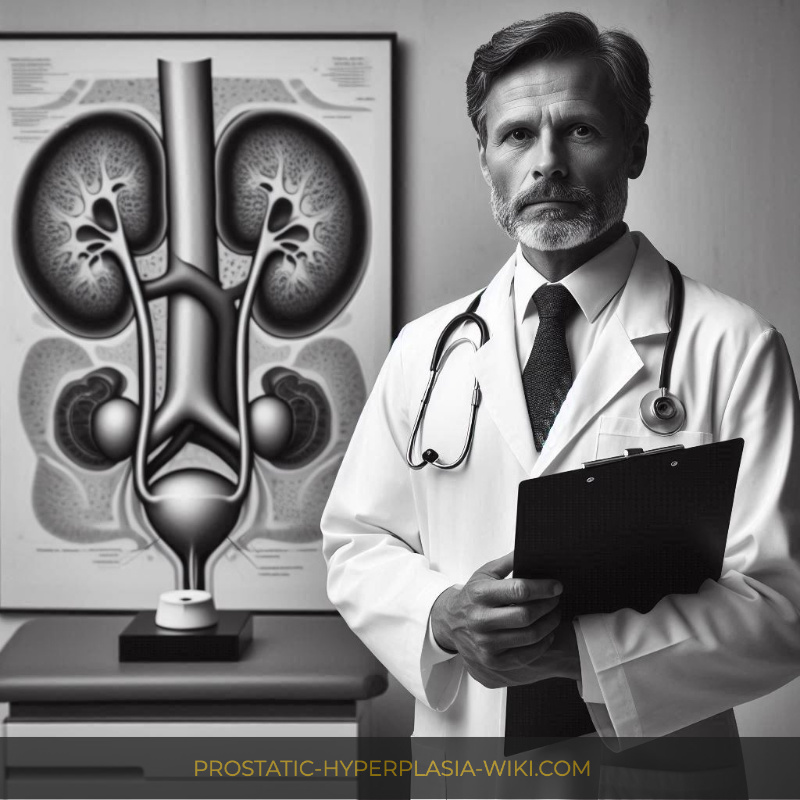Unveiling the Prostate: Its Role and Importance
Nestled beneath the urinary bladder and in front of the rectum, the prostate gland plays a pivotal role in the male reproductive system. This walnut-sized organ is responsible for producing a significant portion of the seminal fluid that carries sperm, contributing to both sperm nourishment and protection during ejaculation. Its strategic location around the urethra ensures that during climax, the prostate gland can effectively contract and release its fluid, which then mixes with sperm and other fluids to form semen. This intricate process highlights the gland's essential role not only in reproduction but also in providing men with sexual satisfaction.
The importance of maintaining prostate health cannot be overstated, as its function is integral to both urinary function and sexual health. Unbeknownst to many, the prostate also works as a powerful valve, directing the flow of urine and semen through the urethra. This dual-functionality underscores the necessity for a careful balance in prostate health; too often, disorders in this small gland can lead to profound repercussions on a man’s quality of life. In fact, the health of the prostate is so crucial that it can serve as a barometer for a man’s overall wellbeing—highlighting the need for awareness and proactive management of its health.
| Prostate Health Component | Description | Impact on Wellness |
|---|---|---|
| Seminal Fluid Production | Crucial for sperm nourishment and mobility, ensuring effective reproduction. | Directly affects fertility and sexual health. |
| Urinary Control | Regulates urine flow through the urethra, maintaining urinary health. | Disorders can lead to urinary incontinence or difficulties, impacting quality of life. |
| Hormonal Regulation | Influences testosterone levels, important for muscle strength, bone density, and sexual function. | Imbalances can affect overall health, mood, and energy levels. |
Through this lens, the necessity for dedicated care and preventive measures becomes evident. Engaging in regular health screenings, adopting a nutritious diet, and maintaining an active lifestyle are paramount in fostering prostate well-being. Armed with knowledge and vigilant attention to its health, men can significantly improve their quality of life and mitigate the risks associated with potential prostate disorders.
Common Prostate Health Issues Men Encounter
Within the purview of men's health, the prostate gland, a pivotal organ in the male reproductive system, can be the source of several significant health issues that merit attention. Among the most prevalent conditions is benign prostatic hyperplasia (BPH), characterized by an enlargement of the prostate gland, which can lead to urinary difficulties such as increased frequency, nocturia, and a hesitant, interrupted urinary stream. Prostatitis, an inflammation of the prostate, can manifest in a spectrum of symptoms, varying from pain in the groin and pelvic area to challenging urination, often accompanied by fever or malaise. Prostate cancer, however, stands as the most grave concern within this context; it is one of the leading causes of cancer-related deaths among men, often presenting without symptoms in its early stages, which underscores the importance of regular screening for timely detection. 
The interplay between genetics and environmental factors, including diet and lifestyle choices, plays a crucial role in the onset and progression of these conditions. Research has delineated a strong correlation between high-fat diets and an increased risk of prostate cancer, alongside the role of obesity in exacerbating BPH symptoms. This body of evidence underscores the importance of dietary modulation as a preventative strategy against prostate health issues.
Moreover, lifestyle adjustments hold paramount significance in mitigating the risk factors associated with prostate health issues. Regular exercise, maintaining a healthy weight, and adopting a diet rich in fruits, vegetables, and whole grains have been shown to confer protective effects against the progression of prostatic diseases. The reduction of red meat consumption and the inclusion of foods high in antioxidants and omega-3 fatty acids can also play a beneficial role in maintaining prostate wellness.
Understanding and embracing the importance of routine prostate screening is critical. Prostate-specific antigen (PSA) testing and digital rectal exams (DRE) offer valuable tools for early detection, particularly for men over the age of 50 or those with a family history of prostate issues. Early diagnosis enhances the effectiveness of treatment, significantly altering the disease trajectory for the better. The nuances of navigating treatment options, from watchful waiting and medication to surgical interventions for more advanced conditions, necessitate a nuanced understanding of each individual's case, emphasizing the importance of informed decision-making in partnership with healthcare professionals.
The Impact of Diet on Prostate Health
The intricate relationship between dietary patterns and prostate health cannot be overstated, as emerging scientific evidence sheds light on how certain foods and nutrients directly influence prostate well-being. A diet rich in fruits, vegetables, and whole grains, which are loaded with antioxidants and phytochemicals, has been shown to offer protective benefits against prostate issues. These plant-based foods contribute to reducing inflammation and oxidative stress in the body, factors closely linked to the risk of developing prostate conditions, including cancer. 
On the flip side, diets high in red and processed meats, saturated fats, and dairy products have been tied to an increased risk of prostate problems. It's suggested that the high fat content in these foods may fuel hormone-driven prostate growth, thus elevating the risk of prostate cancer. Additionally, consumption of calcium in excessive amounts, predominantly from supplements or dairy, may also pose risks to prostate health, urging a balanced intake.
In light of what is men's health and its complexities, the role of specific nutrients such as omega-3 fatty acids, found abundantly in fish like salmon and sardines, becomes crucial. These fats are known for their anti-inflammatory properties, playing a pivotal role in mitigating the risk of prostate diseases. Similarly, foods high in lycopene—a phytochemical found in tomatoes—have been consistently linked with a reduced risk of prostate cancer, highlighting the significance of dietary choices in managing prostate health.
To encapsulate, adopting a diet focusing on whole, plant-based foods while minimizing the intake of processed meats and high-fat dairy products may significantly bolster prostate health. As research evolves, the connection between diet and prostate health underscores a powerful message: what we eat profoundly impacts our well-being, underlining the importance of dietary considerations in the preventive care of prostate diseases.
Key Lifestyle Adjustments for Optimal Prostate Wellness
In the quest for maintaining optimal male wellness, the focus on the prostate gland plays a vital role in what is men's health overall. Acknowledging the significance of lifestyle adjustments can not be overstated. Factors such as maintaining a balanced diet, rich in fruits, vegetables, and whole grains, while limiting the intake of red meat and processed foods, have been scientifically linked to prostate health. Regular physical activity is another cornerstone, with research suggesting that even moderate exercise can help reduce the risk of prostate issues. 
Equally important is the reduction of stress, which has been identified as a contributing factor to various health issues, including those related to the prostate. Incorporating practices such as mindfulness, meditation, or yoga into one’s daily routine can mitigate stress levels, thereby fostering a conducive environment for prostate wellness. The avoidance of tobacco products and moderating alcohol consumption are also paramount. These substances have been shown to adversely affect the prostate, highlighting the need for lifestyle choices that prioritize health.
Hydration is another critical element in the equation. Sufficient water intake ensures the proper functioning of all bodily organs, including the prostate. Men should aim to consume at least eight glasses of water per day, making adjustments as necessary based on activity level and environmental conditions. The benefits extend beyond just prostate health, promoting overall bodily efficiency and well-being.
Finally, the value of meaningful social connections and support networks in enhancing men's health should not be underestimated. Emotional well-being has a profound impact on physical health, including prostate wellness. Engaging in social activities, connecting with loved ones, and seeking support when needed can bolster not just the spirit but also fortify the body’s defenses against health issues, making these lifestyle adjustments not just a matter of physical health, but of holistic well-being.
Understanding Prostate Screening: When and Why
Central to the discussion of what is men's health is the imperative of prostate screening, an essential diagnostic tool proactively employed in identifying potential prostate health issues before they escalate into more severe conditions. Prostate screening typically involves a prostate-specific antigen (PSA) test, which measures the level of PSA in the blood, with elevated levels possibly indicating prostate cancer, benign prostate enlargement, or prostatitis. Another crucial component of screening is the Digital Rectal Exam (DRE), where a physician palpates the prostate through the rectum to identify any irregularities in size, shape, or texture. These methodologies, while not without their limitations and subject to ongoing debate regarding their specificity and sensitivity, represent primary avenues through which early detection and the monitoring of prostate health can be achieved.
The rationale for incorporating prostate screening into men's health regimens is underscored by its potential to detect prostate cancer at an early, more treatable stage. Studies have demonstrated that early detection through PSA screening can significantly reduce prostate cancer mortality. However, the initiation of screening is a decision that should be tailored to individual risk factors, such as age, family history, race, and genetic predispositions. Acknowledging these variables, medical consensus presently advocates for men to begin engaging in dialogue about prostate screening with their healthcare provider around the age of 50, and at 45 for those at higher risk, including African American men and those with a first-degree relative diagnosed with prostate cancer before the age of 65.
Beyond the simple binary of to screen or not to screen, a nuanced approach to managing prostate health emerges, necessitating an informed patient-clinician partnership. This collaboration is pivotal in navigating the complex landscape of prostate screening, balancing the benefits of early cancer detection against the risk of overdiagnosis and overtreatment. It is within this dynamic interplay that the importance of personalized healthcare becomes evident, emphasizing not just the physiological aspects of men's health but the psychological and emotional dimensions as well. Navigating this terrain with a comprehensive understanding allows for more nuanced decisions regarding the timing and frequency of prostate screenings, fostering more favorable health outcomes for men globally.
| Age Group | General Recommendation |
|---|---|
| Average Risk Men | Discuss screening with healthcare provider at age 50 |
| High-Risk Men | Discuss screening with healthcare provider at age 45 |
| Men with More Than One First-Degree Relative with Prostate Cancer at an Early Age | Discuss screening with healthcare provider at age 40 |
Navigating Treatment Options for Prostate Conditions
When delving into the realm of prostate health management, understanding the myriad of treatment options available becomes paramount. Traditionally, the choice of treatment has been contingent upon various factors, including the stage and grade of the condition, overall health status, and the potential side effects of treatments. Medication plays a pivotal role, particularly for benign conditions like Prostatitis or Benign Prostatic Hyperplasia (BPH), with alpha-blockers and 5-alpha-reductase inhibitors being the foremost options to relieve symptoms. However, the advent of personalized medicine has heralded a more nuanced approach towards pharmacotherapy, aiming to tailor treatments to individual genetic profiles, thus mitigating adverse effects and enhancing efficacy. 
Surgical interventions, while considered more invasive, offer a definitive treatment for certain prostate conditions, particularly prostate cancer. Techniques such as radical prostatectomy, which involves the removal of the prostate gland, and transurethral resection of the prostate (TURP), primarily used to alleviate symptoms of BPH, are among the most prevalent. Nonetheless, the introduction of robotic-assisted surgery has significantly improved precision, reduced recovery times, and minimized complications, marking a significant leap forward in surgical prostate treatment.
The landscape of prostate cancer treatment has also been revolutionized by the integration of radiotherapy and brachytherapy, which target cancer cells more directly while sparing surrounding healthy tissue. Advances in technology have fine-tuned these treatments, enabling higher doses of radiation to be delivered with pinpoint accuracy. This evolution in radiotherapy, combined with the development of new radiopharmaceuticals that seek and destroy cancer cells, offers hope for higher cure rates and fewer side effects.
Moreover, the exploration of novel therapies such as immunotherapy, which leverages the body's immune system to fight cancer, and gene therapy, that seeks to correct or modulate the genetic abnormalities driving prostate cancer, encapsulates the future direction of prostate condition treatment. These burgeoning therapies are grounded in the molecular understanding of prostate cancer and represent the frontiers of personalized medicine. As research progresses, these treatments promise not only to extend survival but also to improve the quality of life for patients navigating the complexities of prostate health management.
Content Manager: Dr. Eric Klein











